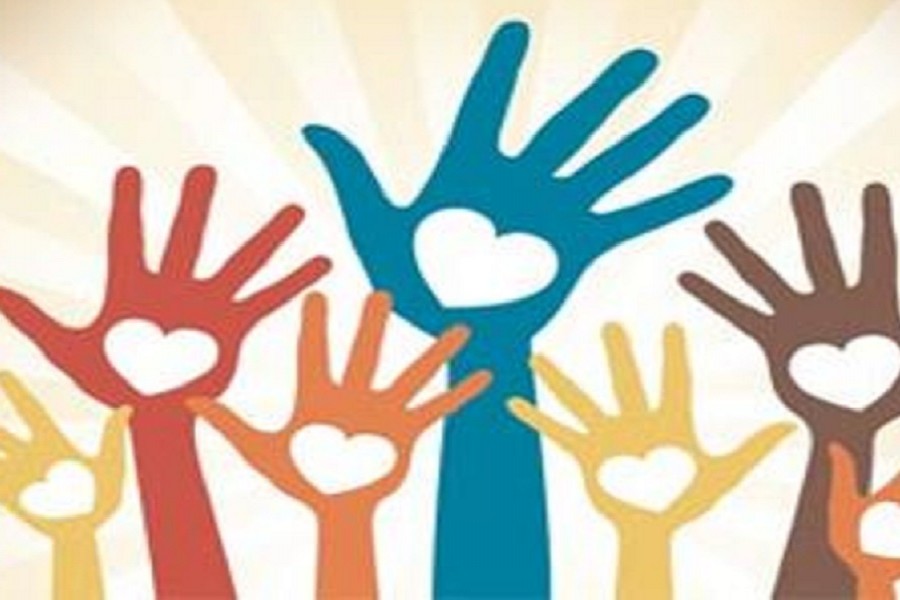Courtesy of return home of expatriates, rapid spread of coronavirus is a now a harsh reality in Bangladesh. A series of steps have already been taken by the government to contain the spread of deadly virus. There is, however, a debate among the citizens the handling of the crisis by the government. Some argue that the response had to be fast and well-planned as the government got at least two months' time when COVID-19 hit China followed by Iran and some other countries. Some opine that it is 'better late than never' and the ongoing measures will be effective if implemented seriously.
Whatever the measures taken by the government, one thing is well established that without citizens' cooperation, it is impossible to deal with the pandemic effectively. Experiences of some other countries have already proved it. Again, one core pillar of citizens' cooperation is volunteerism.
The United Nations (UN) describes volunteerism as a 'basic expression of human relationships' which is 'about people's need to participate in their societies and to feel that they matter to others.' The UN also finds that people around the world engage in volunteerism for a great variety of reasons. These include: assist to eliminate poverty and to improve basic health and education; help to provide safe water supply and adequate sanitation; and join hands to tackle environmental issues and natural calamity.
In Bangladesh, the spirit of volunteerism was conspicuously in display during natural disasters like flood and cyclone when thousands of people, mostly young, extended their hands to help distressed people. As time move ahead, scope and dimension of volunteerism has also changed and widened to some extent.
Nevertheless, over the last couple of years, there is a growing trend in the country to undermine volunteerism. Schools and colleges teach students almost nothing about volunteerism, the virtue and necessity to do some work for others selflessly or without expecting any kind of return. By wrongly equating volunteer works with activities of non-government organisations (NGOs), the policymakers also discourage volunteerism. Rapid economic growth coupled with corruption has weakened social solidarity and mutual trust. So, a large number of people look at voluntary work with suspicion. Suspicion provides unscrupulous people with the scope to oppose or distort voluntary works and thereby take some undue advantages.
Thus, some people and organisations trying to do social work voluntarily are facing some undesirable obstacles. In many cases, politically-backed miscreants stop such work or bully volunteers. In other cases, even the local administration doesn't provide necessary assistance to continue such voluntary works. Bad or bitter experiences of these voluntary workers and organisations discourage many others, especially individuals, to come forward.
This is most unfortunate when mutual cooperation and volunteerism are very much necessary to fight the coronavirus pandemic. It is, thus, time to encourage volunteerism and community work. Respective local administration needs to extend adequate support in this regard so that necessary cooperation from willing citizens can be obtained. Many are ready to do such work. What is needed is to remove the obstacles.


